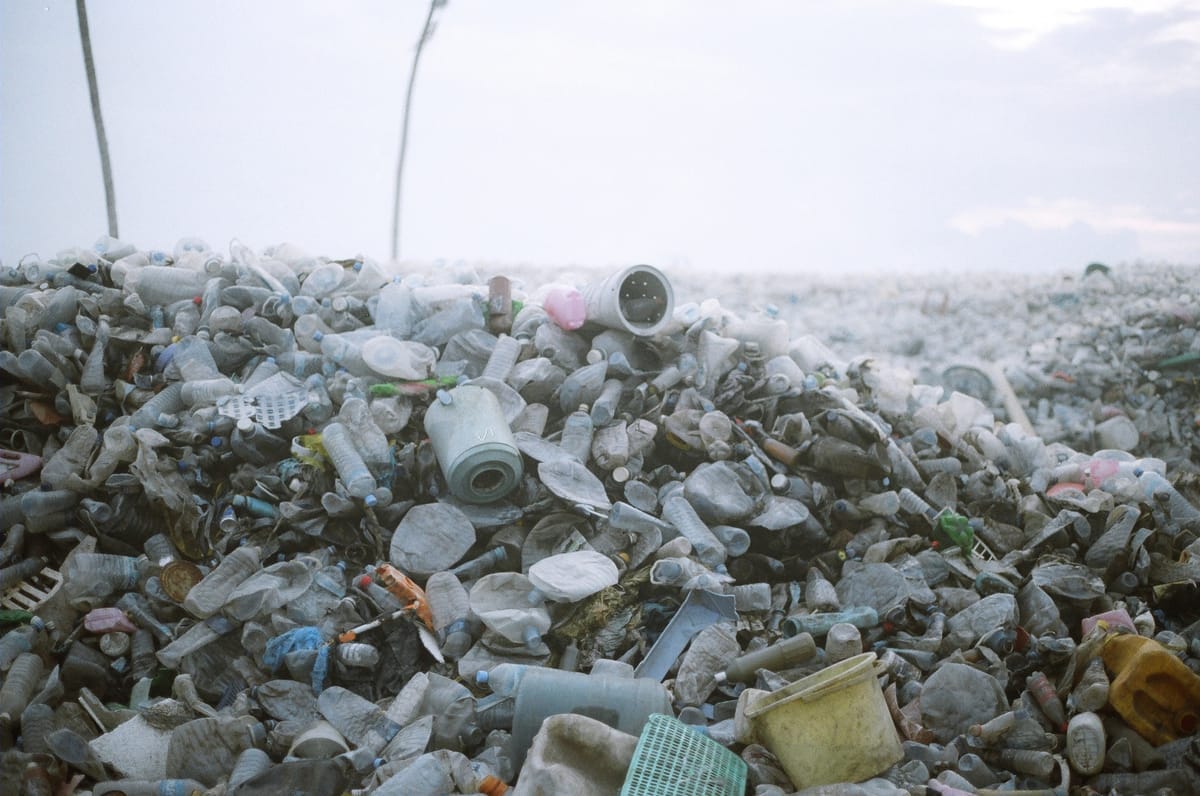What's the purpose of Misaligned Markets
Misaligned Markets is the result of a long intellectual journey to understand the structure and moral dimensions of markets under capitalism.

While markets have existed in many human civilizations, market capitalism has a unique and totalizing nature which commands attention. Today, our lives are mediated by markets, specifically corporate-dominated markets, in ways that were not true just a century ago. Everything, from how we communicate to the particles in our bodies, is heavily impacted by corporate (mis)behavior, with limited means of opting-out.
My intellectual journey
My interest stems from a deep desire to improve the world and live more ethically. I want to support companies with supply chains free from conflict, child labor, and environmental harm, while encouraging my friends and family to do the same. However, I quickly learned that this goal is inextricably tied to understanding the ways that companies benefit from bad regulation, property rights, and market incentives.
For instance, if I don’t know the processes or materials involved in producing an item, I can’t reliably understand its negative supply chain impacts. As a result, I’m forced to trust labels and pledges like “fair trade,” “carbon-neutral,” or “non-conflict mineral” certifications, which are often empty promises. Unfortunately, in some cases, neither companies nor auditors are willing to pay all the costs needed to investigate supply chain abuses. Nevertheless, companies know they can still profit from these labels because consumers like me are willing to pay more for better supply chain conditions. The dissatisfying result is that I’ve acquiesced to living in a world where I must accept responsibility for my consumption’s negative impact on people I’ll never meet.
Eventually, my concerns expanded beyond these moral issues as I realized that market capitalism is bad at surfacing information needed to improve the status quo. While I grappled with the moral implications of these externalized costs, practical questions about sustainability arose. How does market capitalism account for externalized costs—commonly referred to as “negative externalities”— and how are they mitigated over the long term? I found “Econ 101's” responses to these issues lacking and spent a lot of time trying to understand this framework. This intellectual curiosity was satiated through hours of reading, introspection, and late-night conversations with friends who share my commitment to understanding the world.
A change in perspective
In 2021, after ten years of thinking about these issues on and off, I had a breakthrough. I'd been seeing these different facets of market capitalism in isolation, but they're manifestations of the same thing: information asymmetry and negative externalities.
Firms’ tendency to externalize costs isn’t random, as unaccounted negative externalities preserve profit margins. However, when these externalities grow large enough—like in the case of climate change—they threaten society’s resilience. Furthermore, companies don’t just passively create externalities; they alter the information available to consumers and citizens to resist regulation and protect their profits. Recycling campaigns are a classic example of this. The plastics industry invented a “solution” whole cloth, not through innovation or improvement of material systems but by misrepresenting the purpose and efficacy of recycling.
Thinking in terms of systems rather than isolated issues brought much-needed clarity. The distinction between human society and the broader ecological systems of our planet is merely conceptual. There is only one world; separating it into different systems serves mainly to help us navigate it. Our decisions within society affect multiple systems, which in turn impact society by altering the world we inhabit. These dynamics encompass political, environmental, and ethical dimensions. Moreover, the totalizing nature of market capitalism obscures this complexity. Whether at the grocery store or Apple Store, all we see are stocked shelves—not the dependencies required to produce, transport, and provide these goods. This renders invisible all the individual externalized costs that can aggregate across a company’s supply chain and effectively hide long term harms.
There are also psychological, cultural, and normative beliefs and behaviors that reinforce the invisibility of this complexity. How we think of our relationship to one another and to the broader world is mediated through market capitalism. Insofar as we can envision ourselves making moral or environmental progress in the world, it’s almost exclusively through our role as consumers, workers, producers, and investors. Supporting ESG (Environmental, Social, and Governance) companies, lowering our family’s carbon footprint, and swapping carbon offsets are our primary weapons in the war against climate change. Neither questioning the underlying assumptions that generate externalities nor trying to better understand the importance of non-economic forms of value seem to be viable options.
Navigating misaligned markets
These realizations transformed my project from a personal curiosity into something crucial for understanding the world—not just for ethical reasons, but for survival. Following the OceanGate submarine implosion in 2023, many observers suggested that society resembles that ill-fated voyage. We’re locked in a planet captained by reckless individuals whose decisions can harm us all in the long run. By participating in this system, we tacitly consent to its most damaging behaviors.
That said, my blog is not about how the world is getting worse, but how it’s becoming needlessly riskier. Due to the design of our society, individuals are increasingly expected to navigate these risks on their own, even when they arise from broader systemic causes or business models that externalize harms. Such a system, even if it delivers unimaginable abundance, can only be described as “metastable.”
Given these risks, there is a pressing need to evaluate the institutions and systems of the modern world. With this blog, I want to investigate not just market capitalism’s metastability, but a trend that's over 10,000 years in the making. Since our Paleolithic ancestors began altering their environment, humanity has become more susceptible to self-created pitfalls, such as overhunting, soil erosion, pollution, climate change, and information asymmetry. By highlighting humanity’s ongoing quest to optimize the world, I hope to develop new frameworks that help us collectively understand the challenges we face today and in the future.
